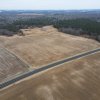Fishing good at inshore wrecks and reefs
Fishing in the Cape area remains good. Tog were caught when the boats could get out to the inshore wrecks and reefs. Last weekend was a blowout, but earlier in the week we had reports of decent numbers of fish taken on crab baits.
With the lowering of the bag limit and increase in the size limit it will be interesting to see if the interest in tog fishing remains as high as it has been. The regulation change will no doubt discourage some folks from fishing for tog, but I do feel the majority of anglers will still take the time and money to go out for these tasty, hard-fighting fish.
A surprise came when good numbers of rockfish were caught along the oceanfront between the inlet and Fenwick Island. Trolling with plugs produced most of the fish. Successful anglers burned a lot of fuel looking for bait and birds, but once found, limit catches of 20-pounders were reported. We had an unconfirmed report of a large bluefin tuna caught and released near Fenwick Island.
Rockfish are still being taken out of Indian River Inlet. The outgoing current has been the most productive time with bucktails, shads and flies the best baits.
Freshwater fishing has been very good. Big crappie and pickerel were caught from the ponds on live minnows, shiners and jigs. Bass have also been taken on the same baits.
After two winters of cold weather, it has been a welcome relief to have this warm spell and the good fishing it has produced. I have no idea what this means to the overall fishing prospects for the remainder of the year, so I plan to enjoy what we have now and not worry about what will be.
Cape Hatteras
The free ride at Cape Hatteras is over. Ever since the National Park Service took over the seashore, visitors have been able to drive on the beach from Oregon Inlet to Ocracoke Island without purchasing any type of permit.
The preservationists and lawyers from the National Audubon Society and Defenders of Wildlife discovered the management plan for the Cape Hatters National Seashore had never been completed and sued the Interior Department to prohibit vehicles on the beach until the plan was finished. They were not able to completely accomplish their goals, but did put much of the beach off limits to everyone during the spring nesting season. In a related action, red fox were hunted down and killed to protect the nesting birds. An interesting position for the Defenders of Wildlife.
The management plan is now complete and to no one’s surprise, visitors, including surf fishermen, to the Cape Hatteras National Seashore will now have to pay to drive on the beach.
In addition to the North Carolina fishing license that has been in effect for some time, it will now be necessary for those who wish to drive on the beach to purchase a permit and attend a beach-driving class.
Thirty years ago, when I was the Delaware Mobile Surf-fishermen’s representative to what was then the United Mobile Surf-fishermen (a regional coalition of surf fishing clubs), the folks from North Carolina were strongly opposed to allowing the federal government to charge a fee to drive on the beach. I explained how Delaware did have a fee for a surf fishing permit that made surf fishermen a revenue-generating entity, not just a bunch of malcontents who expected state services for free. My words fell on deaf ears.




















































